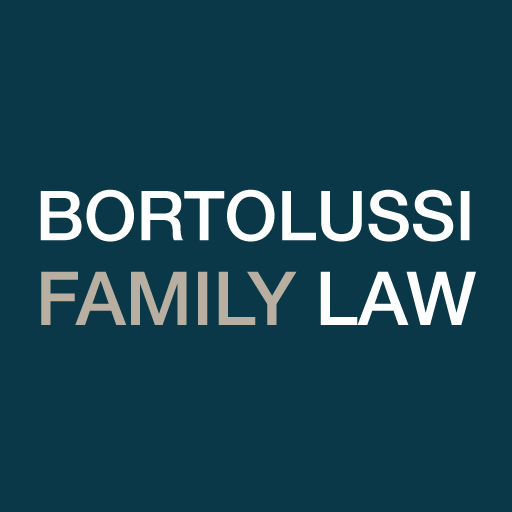In Search of the Civilized Divorce Through Family Dispute Resolution

Bill C-78 encourages parties to attempt to resolve family law matters through alternative family dispute resolution processes. At the end of the movie The War of the Roses, divorce lawyer, Gavin D’Amato (played by Danny Devito) advises a client who is contemplating divorce that he has two options: either move forward with the divorce with the goal of getting through it “as quickly and cleanly as possible so you can begin rebuilding your life” or return to his spouse and attempt to repair his marriage. His sage advice was borne out of his experience that, in divorce, “there is no winning, only degrees of losing.”
While the film was based on the relationship and ultimate demise of the fictional Roses, family law litigants would be wise to take Gavin D’Amato’s advice regarding the quick and clean resolution of the issues arising from their separation or divorce.
In May 2018, the justice minister introduced Bill C-78, a bill that proposes to amend the Divorce Act. One of the many proposed changes focuses on encouraging family law litigants to use family dispute resolution processes, which would include a range of options such as negotiation, mediation and collaborative law. Bill C-78 would also require lawyers to encourage parties to attempt to resolve matters through alternative dispute resolution processes as appropriate in the circumstances.
Lastly, subject to provincial law, a court may direct the parties to attend a family dispute resolution process.
The bill passed third reading on Feb. 6, 2019.
Alternative dispute resolution processes in Family Law have been available to separating or divorcing individuals for decades. In fact, a significant number of family law matters are resolved through out-of-court negotiations. With the proposed changes in the Divorce Act requiring them to consider their options, family law litigants should educate themselves on the different processes available to them outside court.
Negotiations
Parties have an option of negotiating a settlement directly with the other party or through lawyers. The family law court system encourages negotiations both outside the court process and with the assistance of a judge through conferences. Family law litigants need not wait for a judge to render a decision at a motion or trial in order to settle their issues on a temporary or final basis. They always have the option of reaching a settlement, the terms of which are incorporated into Minutes of Settlement and then an Order, even after one party has commenced an action in court.
Mediation
In mediation, the parties utilize the services of a neutral third-party professional who assists the parties through the process of negotiation to arrive at a Memorandum of Understanding. (MOU). The MOU is not a binding agreement but forms the foundation for final Minutes of Settlement or a Separation Agreement, which are binding.
Given that the mediator is a neutral third party, he or she cannot provide legal advice to either party. The mediator must remain neutral and impartial throughout the process. He or she cannot force the parties to agree to terms but assists them in communicating with each other and to understand the other party’s interests and position.
Mediation is a completely voluntary process. Parties must agree to work with a mediator and they can decide, at any point during the process, to terminate the process. The parties must also come to an agreement voluntarily, free from coercion or pressure from the other party or others.
Not all family law mediators are certified. However, certified mediators are specially trained to screen for domestic violence and to ensure that the process is safe and appropriate for both parties. They are also trained to effectively assist parties with communicating their interests to each other throughout the mediation process.
Once the parties arrive at an agreement that is incorporated into an MOU, the parties would need to retain their own lawyers to draft the final Minutes of Settlement or Separation Agreement and to obtain independent legal advice on the legally binding document.
Collaborative law
The collaborative law process is often utilized by separating individuals as an alternative, at the outset, to going to court. However, under the proposed changes to the Divorce Act, the definition of “family dispute resolution process,” which the litigants are encouraged to use, includes collaborative law.
In the collaborative law process, each party is represented by his or her own lawyer throughout the process. Often, the parties and their counsel utilize the services of neutral third parties, such as a neutral family therapist and/or financial specialist to assist the parties with the emotional and financial aspects of the separation.
All professionals who engage in the collaborative law process receive specialized training in the collaborative model, which emphasizes full disclosure, mutual respect, communication and a collaborative mindset. The collaborative law process can assist parties with arriving at customized legal agreements.
The proposed changes to the Divorce Act reflect the long-standing practice of most courts in encouraging family law litigants to explore options available to them outside of the court process. While some lawyers might question the effectiveness of the proposed changes, the additional duties for parties and legal counsel to consider the use of alternative dispute resolution processes will hopefully open the eyes of some litigants who are too blinded by emotion to consider a less adversarial option.
According to the fictional D’Amato, “a civilized divorce is a contradiction in terms.” Hopefully, the proposed changes in the Divorce Act will broaden our view of family law litigation as limited to courtroom battles to include the concept of a more civilized divorce process.
Perhaps a civilized divorce is not a contradiction in terms but an achievable reality.
Bortolussi Family Law is here to help you, please get in touch.





